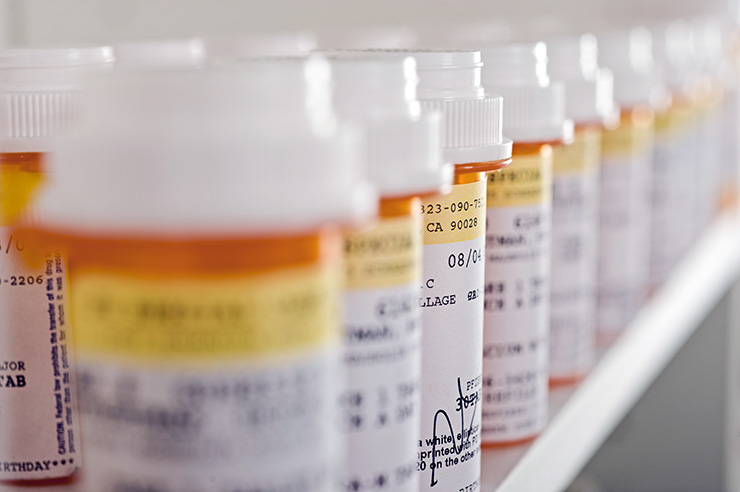Orlando, Fla is hosting the 5th International Conference on Antibiotics and Antibiotic Resistance on May 30 and 31. On June 3 and 4, London, UK is the site of the 6th World Conference and Exhibition on Antibiotics and Antibiotic Resistance. One week later, Portugal will host the 3rd International Caparica Conference on … you guessed it, Antibiotic Resistance.
In 2018, the World Health Organization (WHO) named antibiotic resistance as one of the biggest threats to global health, food security, and development today. It can affect anyone, of any age, in any country.
Why is antibiotic resistance a problem?
To understand a threat, you first need to define the enemy. Antibiotic resistance occurs when bacteria develop the ability to defeat the drugs designed to kill them. If you take antibiotics unnecessarily on multiple occasions, the body adapts and learns the make-up of the antibiotic. When this occurs, the next time your body is exposed to bacteria that require an antibiotic, the medicine is ineffective. Your system has become resistant to that antibiotic and is rendered defenseless.
The issues that stem from antibiotic resistance range from an extended illness to death. The in-between includes increased doctor visits, use of stronger and more expensive drugs for treatment, and the possibility of antibiotic-resistant bacterium spreading to others.
“When antibiotics first came out, nobody could have imagined we’d have the resistance problem we face today,” said Bonnie Bassler, a renowned molecular biologist and professor at Princeton University. “We didn’t give bacteria credit for being able to change and adapt so fast.”
Prescribing an Epidemic
The leading causes of antibiotic resistance are overuse and misuse. Many physicians write prescriptions for antibiotics even though the ailment, such as a common cold or fever, doesn’t warrant the medicine. Why would a physician do this? Pressure. Patients often demand antibiotics because they believe it’s the cure and physicians fall victim to customer demands. If their doctor won’t prescribe it, they’ll go to someone who will.
Overprescribing is only one cause. Patients who fail to finish their antibiotic course are a factor. If you stop taking the medication because you feel better, you jeopardize that medication’s effectiveness in the future. When the prescription fails to kill all of the bacteria because you cut your meds short, that remaining bacteria can become resistant to the antibiotic the next time you’re sick. Your system has become antibiotic resistant.
Always finish the entire prescription.
When should a patient take antibiotics?
Antibiotics are used for treating serious infections caused by bacteria. They are extremely important to battling these infections and even staving off future conditions. However, they will not cure a viral infection and may cause unnecessary side effects. Most viruses can be treated with over-the-counter medications and simply need to run their course.
Antibiotics? Yes!
- Strep throat
- Bacterial Pneumonia
- Sepsis
- Tuberculosis
- Whooping cough
- Urinary Tract Infection (UTI)
Antibiotics? No!
- Common Cold
- Fever
- Sore throat
- Cough or chest cold
- Flu
- Most sinus and ear infections
* If you are suffering from any of these conditions, please consult your primary physician for medical treatment.
How can I prevent antibiotic resistance?
Antibiotic resistance is classified as a global health threat. Entrepreneur and philanthropist Bill Gates and his wife, Melinda, recently announced a commitment of up to $25 million to accelerate efforts to address drug-resistant infections. “I cross my fingers all the time that some epidemic like a big flu doesn’t come along in the next 10 years,” Gates has said. “We are a bit vulnerable right now if something spread very quickly like a flu that was quite fatal – that would be a tragedy and new approaches should allow us to reduce that risk a lot.”
Here are a few simple rules to fight the resistance.
- Never take an antibiotic for a viral infection
- Complete the antibiotic treatment you were prescribed
- Never share your or any unused antibiotics with someone else
- Follow vaccination programs
- Never demand antibiotics from a physician
- Improve hygiene to prevent the spread of infection
- Spread the word about antibiotic resistance
HRSI has been customizing solutions for healthcare providers and self-pay patients for more than 25 years. To learn more about our services, feel free to Contact Us Monday through Friday from 8 a.m. – 5 p.m. or on Saturdays from 10 a.m. – 2 p.m.


Recent Comments